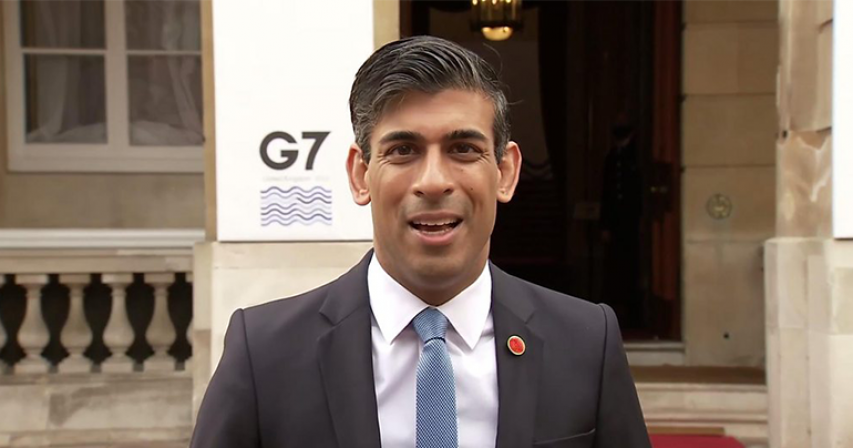G7, Rich nations confident on reaching tech tax deal
- 5 years ago

Finance ministers from the G7 group of leading economies are confident of striking a deal on taxing multinational companies at their meeting in London.
The agreement is expected to include a global minimum rate of corporation tax.
It would target tech giants such as Amazon and Microsoft.
German finance minister Olaf Scholz said the deal would "change the world".
He said a 15% rate would help pay back debts that have built up during the pandemic - and that he was "absolutely confident" there would be an agreement.
"If we agree on the minimum taxation for corporates, this will help to go out of this race to the bottom we see with taxes today," he told the BBC.
"And this will help the countries we live in to finance their tasks, and - especially after Covid crisis and all the money we spent - to defend the health of the people, and to defend the economy."
French finance minister Bruno le Maire urged Ireland, which has one of the lowest corporate tax rates in the European Union, at 12.5%, to get "on board".
He told the BBC: "European countries, that in the past, opposed this new international tax system, must understand that they have to give the agreement to this major breakthrough".
Both ministers said agreement on a minimum rate remained a sticking point.
Mr Le Maire said he saw the 15% rate as a "starting point".
He said: "If it can be higher, it is better to have a higher rate than 15%."
Mr Scholz suggested that 15% would be an effective starting point that would mark a "turning point" after years of going in the other direction.
It came after UK Chancellor Rishi Sunak said he was "confident" of reaching a global agreement on digital taxation ahead of a meeting of world finance leaders.
Finance minsters will also discuss climate change at the two-day meeting which started in London on Friday.
Ahead of the G7 talks, Mr Le Maire and Mr Scholz along with their counterparts in Italy and Spain co-signed a letter urging an agreement on an international tax system "fit for the 21st Century".
In a letter to The Guardian, they wrote: "Introducing this fairer and more efficient international tax system was already a priority before the current economic crisis, and it will be all the more necessary coming out of it."
Those attending the G7 finance ministers summit are certain that a deal will be done on global taxation by Saturday morning - and they are not shy about its "historic nature". Mr Scholz told me they'll "have an agreement which will really change the world... this will be a turning point in global co-operation".
Another finance minister said privately the deal will start to set the rules for the 21st Century, because if the Western G7 democracies were incapable of doing it, then China would.
The UK's turnaround on minimum tax rates is quite something. Successive elections have been fought on the danger of corporation tax hikes to jobs and investment. Now, not only is that policy, but the UK looks set up to have overseen an agreement to limit the extent to which a future chancellor could cut it.
There are two sticking points, sources tell me. Firstly, there is the mention (or not) of a global minimum corporation tax rate of 15%. There is also a move to use the wording "at least 15%" to show some ambition - but also to provide some negotiation space at the wider G20 meeting chaired by Italy and including the likes of China and Russia.
The US also asked countries that have levied digital taxes - France, Italy and the UK, to withdraw them quickly as part of the deal. At least one finance minister said that was a "non-starter", as it could immediately result in the big tech giants paying less, not more tax.
The end result will depend on fine detail, but looks likely to involve a new ability to charge 100 or so of the world's largest companies based on where their sales are, not where they house the factories or patents and trademarks.
This could be transformative, and not just for Big Tech, but some more conventional multinationals.
Source: BBC
Comments